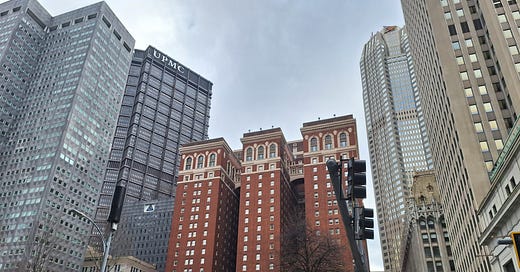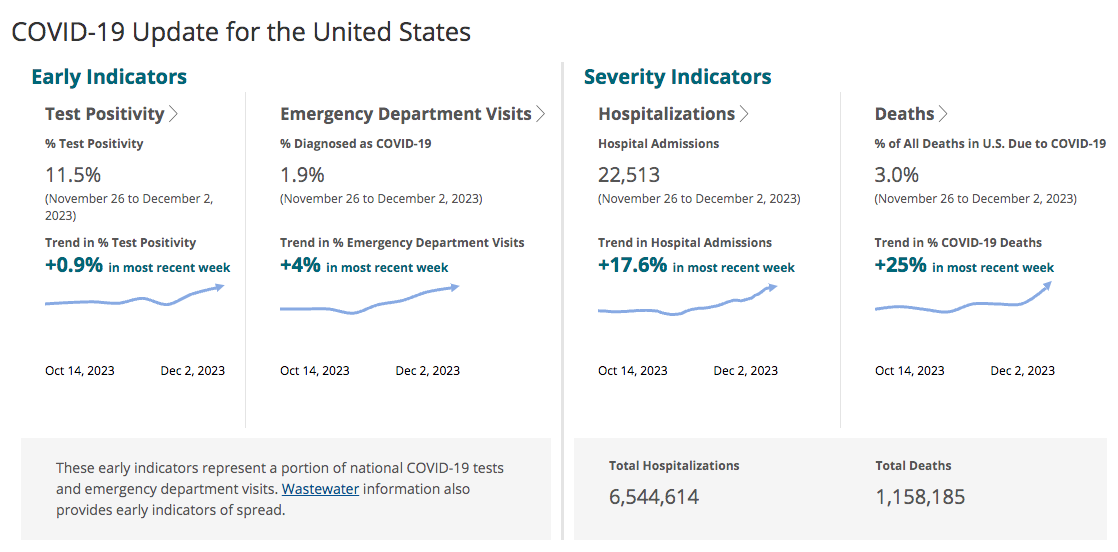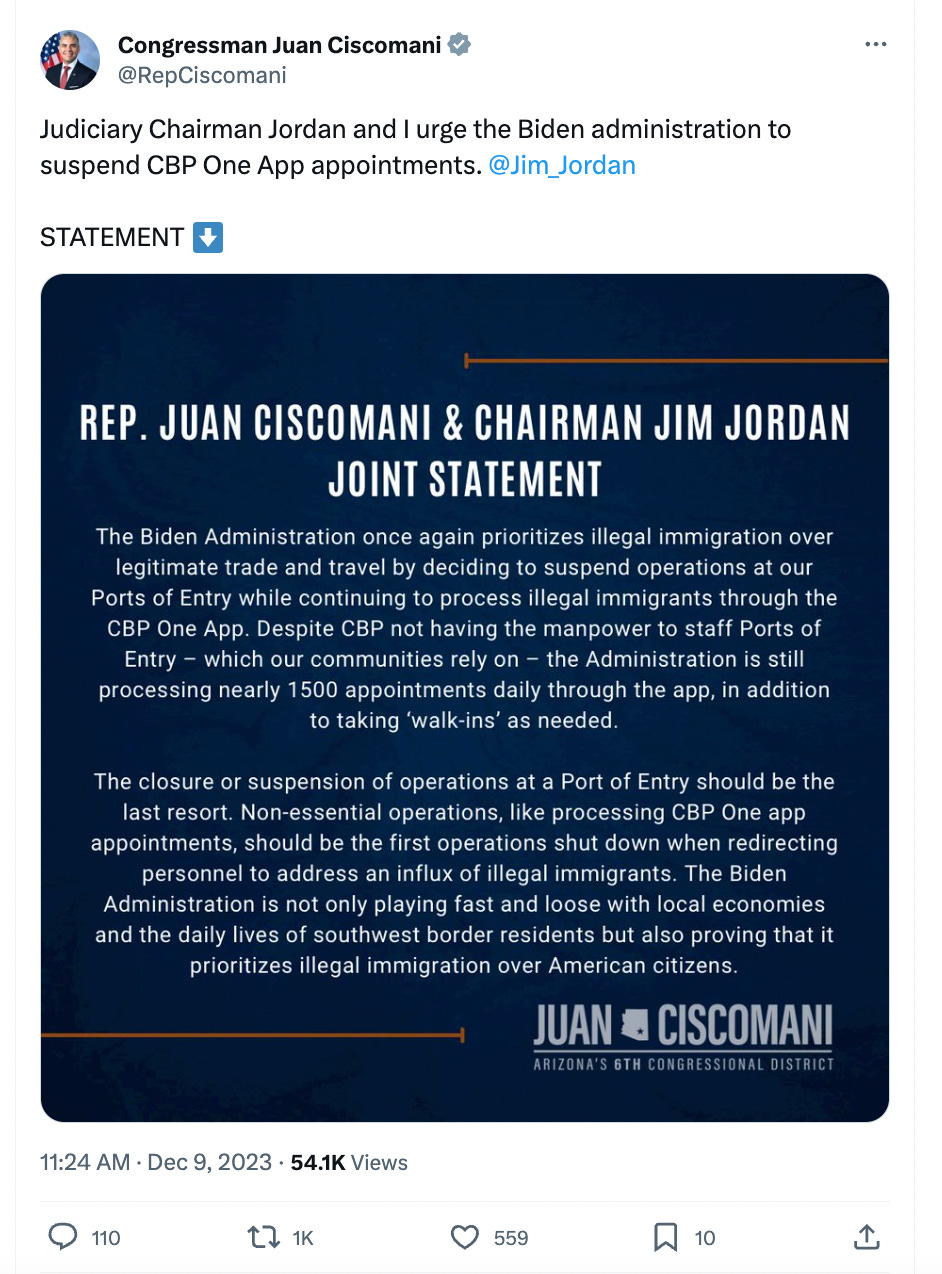The Agenda hits the road
Covid derails Curt's travel plans and he drives across the country ... But Tucson politics are never far away ... Hobbs reverses course.
If you’d like to get the word out about your business, event or organization, we have good news! The Tucson Agenda and Arizona Agenda are opening up advertising opportunities. Click on the button to get in touch.
The United Way of Tucson and Southern Arizona is recruiting for its Volunteer Income Tax Assistance program, which provides free, quality tax preparation for low and moderate-income families and people across the state.
The program’s IRS-certified tax preparers help people access tax credits and maximize their refunds. Volunteers contribute a minimum of 40 hours during tax season and commit to one shift per week from mid-January through mid-April. There are several different in-person and virtual roles available and United Way provides the training, so no prior experience is necessary.
Learn more here or by clicking the image above.
A reporter can’t ever really get away from the job. Even when I (Curt) was walking around downtown Pittsburgh or driving through a rainstorm in Missouri, I kept connecting what I saw to Tucson’s politics.
Most of the time, these ideas fade away on their own. But Covid derailed my travel plans after a Thanksgiving visit with family in Pittsburgh. I ended up on a 2,000-mile drive back to Tucson. That’s a lot of time to ruminate.
I started talking into an audio recorder to pass the time. What came out wasn’t exactly Shakespeare, of course. But some of it was actually worthwhile and I wrote down the best parts.
Fellow travelers: It was early morning the day before Thanksgiving when I walked up to the line to check my suitcase at the Tucson airport. I was a little sleepy and already settling in for a day of flights.
“Hablas Español?”
A young woman peered at me from the other side of one of those bands that airlines use to separate lines. I said I could speak Spanish, she showed me her ticket, and yes, she was in fact in the right spot.
I was just a fellow traveler right then, so I didn’t pry. But the papers she showed me were from a local migrant aid group, meaning she was one of the thousands of asylum seekers who’ve come through Tucson recently.
We chit-chatted for a bit and she went back to attending to the toddler wrapped around her legs. I started talking to the couple next to me who were on their way to a wedding.
As dozens of us waited impatiently—why did the airline only have one person at the desk on one of the busiest travel days of the year?—a man and his young son walked up to the line. The woman waved him over.
He was trying to get to San Francisco and he also had papers from a migrant aid group. I helped him figure out which gate he should go to. His son, bored beyond belief, started making noise. A middle-aged woman in line made a goofy face to distract him, but it only worked for a moment. The father aimed a wry grin, and a small shrug, at me that seemed to say, “Kids, amiright?”
As I walked toward the airport security lines, I wondered what would happen if the federal government dropped the ball and stopped funding the local collaborations that keep asylum seekers from being left out on the streets.
We may find out sooner, rather than later. County officials say that could happen just a few months from now.
Covid strikes: If you’re planning to travel this Christmas, be aware that very few people, like 1 in 100, wear masks at airports or while on airplanes. Not even the guy who sat a few rows behind me and coughed every few minutes like clockwork on a three-hour flight.
I wore a mask for most, but not all, of the time. That was my undoing. I got Covid. It sucked. I wasn’t one of the 22,500 people who were hospitalized with Covid the week after Thanksgiving. But it was not fun and it wrecked my travel plans.
Downtown designs: Pittsburgh has a real downtown. Buildings packed tightly together, so tall they put the streets in shadow. And wide sidewalks that welcomed people to walk around.
A few days earlier, I’d written a story about the Rio Nuevo board and read that they wanted Tucson’s downtown to compete with San Diego, Austin, and Portland for citizens and tourists. Those are similarly sized cities in the West, so it’s no surprise the board would highlight them.
But I wonder what would happen in Tucson if we modeled ourselves after cities like Pittsburgh, where you can feel a sense of awe just walking around downtown?
I thought back to the Tucson officials I read about who tried to construct the city’s first office building back in 1923. What if the idea had caught on and downtown Tucson had grown up with ever-taller office buildings?
The choice before us now deals with the hundreds of millions of Prop 411 dollars we’re going to spend over the next decade. We’ll build and repair roads, bicycle paths, and an array of other transportation projects.
The political battle over how to spend that money is well underway. It’s an interesting one. Should we keep spreading out or start building taller? Do we want to make long commutes less of a headache or do we want to encourage pedestrians and bicyclists?
So much water: Rain fell for an entire day as I drove across Missouri. Hour after hour. It didn’t stop until well into the night.
As a Midwestern kid, I would’ve barely noticed. It rained a lot. Big whoop. But as a Tucsonan, it looked like a year’s-worth of rain fell in 24 hours. And it wasn’t the storm of the century, either. The weather forecasters on the radio had a ho-hum tone to their voices as they talked about it.
I kept thinking about the Midwestern companies that set up enormous farms and ranches in Arizona. They pump huge amounts of groundwater here, instead of staying in places like Missouri that get so much rain. Baffling.
But I also saw the dried-up banks of the Mississippi River stretching toward the middle of the river. They have their own water problems, too. That’s important to keep in mind when the idea comes back, as it always does, to build a pipeline from the Mississippi River to Arizona.
Weirdos and heroes: As I wrap this up, I’d like to highlight some of those random encounters that add flavor to any road trip.
I paid $13 for a bagel sandwich at the Dallas airport. Even though I’m used to getting ripped off at airports, my shocked face at the price caused the woman behind the register to giggle with embarrassment. We came up with a series of TikTok videos she could make: Put her phone on the register and watch people’s eyes widen and jaws drop as they see the price. I bet it’d get millions of views.
We want to reach people on TikTok, but we aren’t the best people to do it. Help us hire somebody who is! Donate to our fundraising campaign!
As I was washing my hands in the bathroom of a Love’s gas station in Oklahoma, the Christmas song “Silver Bells” was playing. A guy walked into the bathroom wearing cargo shorts (in late November), covered in tattoos, and carrying a huge fountain drink. He stopped, grinned, leaned back slightly and belted out “Schmilver Schmells” in tune with the song. I burst out laughing.
Not to get all Mr. Rogers here, but I noticed something that gave me hope while driving on the interstate. Everybody moved over when somebody was stopped on the shoulder. I noticed it a few times before I started counting, but I can report that I saw people change lanes to keep people safe more than 70 times from Ohio to Arizona.
Maybe that’s the best idea I can leave you with. Everybody made a small choice that kept other people safe. I could chalk it up to people worried about getting a fine, but a lot of the people who moved over also blew by me going well over the speed limit.
It looked like good, old-fashioned looking out for each other.
Pulling back the curtain: The Arizona Daily Star’s Ellie Wolfe takes a deep dive into spending by every unit within the University of Arizona, thanks to an internal financial document that shows the UA spent $125 million more than it made this last fiscal year. The document provides a spending breakdown from fiscal years 2019 through 2023. The business affairs office oversaw overspending to the tune of $14 million and is led by the UA’s Senior Vice President of Business Affairs and Chief Financial Officer Lisa Rulney, the person responsible for the miscalculation of projected cash on hand.
About-face: Arizona Gov. Katie Hobbs changed course on Friday, asking President Joe Biden to send National Guard members to help reopen the Lukeville port of entry, just a few days after she said she didn’t plan on sending troops to the Arizona-Mexico border, the Tucson Sentinel’s Paul Ingram writes. Hobbs wrote in the letter that the U.S. Customs and Border Protection’s decision last Monday to indefinitely close the port “has put Arizona’s safety and commerce at risk.” For residents of Ajo and other nearby areas, the closure has led to stress, frustration and concerns about the future.
School safety wishlist: The Arizona Department of Education’s School Safety Task Force met for the last time Thursday afternoon to create a list of recommendations for the upcoming legislative session, Arizona Public Media’s Paola Rodriguez reports. The task force is recommending that legislators remove barriers in state laws to allow retired law enforcement officers to work as School Resource Officers, adding increased mental health training and creating a school safety guidance manual. It says the shortage of school resource officers and mental health professionals is not a funding problem, but a shortage of qualified applicants.
Automating the law: A team of UA researchers in artificial intelligence, law and computer are working to create code that will be able to write and execute wills electronically, eliminating the need for probate lawyers and going to court, Inside Tucson Business’ Jimmy Magahern writes. Legal services were ranked in the top three by Forbes in an article listing the industries most likely to be heavily impacted by the use of artificial intelligence, echoing an earlier study from Goldman Sachs which estimated that 44% of the work in legal professions could be automated by AI in upcoming years.
Pump the brakes: Historic preservation advocates and state and local leaders are rushing to stop the UA’s plans to dismantle architect Paolo Soleri’s chapel in Tucson. They launched a “Help us #SaveSoleriChapel - Preserve the Past for the Future” campaign, the Arizona Luminaria’s Dianna M. Náñez and Carolina Cuellar write. Advocates are saying UA officials ignored state preservation laws that may protect the chapel, one of the few places in the world where Soleri’s siltcast designs can be seen. Solteri designed the chapel at the University of Arizona Cancer Center after his wife Colly died of the disease in 1982.
Barrier to success: Tucson parents are still struggling to find affordable childcare, the Star’s Erika Wurst writes. Pima Community College partners with local daycare centers to help provide affordable access to childcare for students, with the college paying a portion of costs, but many other families are still not able to access affordable, quality options that allow parents to reenter the workforce.
“Lack of affordable childcare options is not just an inconvenience for parents in this state. It is holding back our economy,” said Michael Guymon, President and CEO of the Tucson Metro Chamber.
You can find our first selection of the letters to the editor we received in tomorrow’s Tucson Agenda. For this week’s prompt, we want to keep the focus on elections. What issue are you most concerned about headed into the 2024 election?
You can write about the prompt, or another local topic that you want to bring up. You can find the guidelines for writing letters here.
Send your submissions (100 words or less) to curt@tucsonagenda.com. Be sure to put “Letter to the editor” in the subject line.












